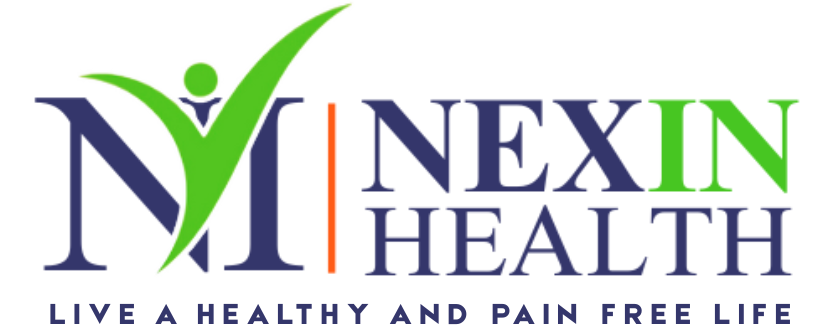Heart Blockage Treatment in Noida
Get effective heart blockage treatment at NexIn Health Clinic in Noida. Our experienced team offers personalised care and advanced therapies to ensure optimal heart health. Schedule your consultation today for a healthier tomorrow!
Book your Appointment Now
Book AppointmentWhat is
Heart Blockage?
Heart blockage, also known as heart block, refers to a condition where the electrical signals that regulate the heartbeat are partially or completely obstructed. This disruption can occur at various levels within the heart’s conduction system, affecting how effectively the heart beats and pumps blood. Symptoms may include dizziness, fatigue, fainting, and in severe cases, chest pain or heart failure.
Heart block can be categorised into three degrees: first-degree, second-degree (which has two subtypes), and third-degree, with the latter being the most severe and potentially life-threatening. Treatment options vary depending on the severity and may include medications or the implantation of a pacemaker.
Types of Heart Blockage
Heart block is classified into three main types, based on severity and the degree of signal interruption:
First-Degree Heart Block: In this mild form, electrical signals are slowed but still reach the ventricles. It typically doesn’t cause symptoms and may not require treatment.
Second-Degree Heart Block: This type is further divided into two subtypes:
- Type I (Wenckebach): The electrical signals progressively get slower until one signal is completely blocked, causing a missed heartbeat. Symptoms may include lightheadedness but are often mild.
- Type II: Some signals fail to reach the ventricles without progressive slowing, which can lead to more significant symptoms and may require a pacemaker.
Third-Degree Heart Block (Complete Heart Block): This is the most severe type, where no electrical signals reach the ventricles, causing them to beat independently of the atria. This can lead to serious symptoms such as fainting, fatigue, and even heart failure, often necessitating immediate medical intervention, such as pacemaker implantation.
Understanding these types can help in diagnosing and managing heart block effectively.
What are the Symptoms?
The symptoms of heart block can differ based on the extent of the blockage and its impact on the heart’s pumping ability. Common signs may include
- Chest discomfort
- Fatigue
- Difficulty breathing
- Heart palpitations
- Increased respiratory rate
- Nausea
- Lightheadedness
- Episodes of fainting
Individuals with first-degree heart block often remain symptom-free, and this condition might only be detected during a routine electrocardiogram (EKG). In contrast, symptoms associated with third-degree heart block are more pronounced due to significantly reduced heart rates. If you experience severe symptoms, it is crucial to seek medical attention immediately.
What Causes Heart Block?
Heart block can arise from various factors, including:
- Myocardial infarction (heart attack)
- Coronary artery disease (CAD)
- Cardiomyopathy (heart muscle disease)
- Valvular heart diseases
- Scarring in the conduction pathway of unknown origin
- Congenital heart defects
- Damage resulting from open-heart surgery
- Side effects from certain medications, such as beta-blockers, digitalis, and calcium channel blockers
- Exposure to environmental toxins
- Obstructive sleep apnea
- Thyroid disorders
- Infections like Lyme disease
- Autoimmune disorders
- Genetic factors
What are the Risk Factors for Heart Block?
Your risk of developing heart block may increase if you:
- Suffer from other cardiac conditions, such as coronary artery disease or valvular heart disease
- Have congenital heart abnormalities
- Are affected by conditions like rheumatic heart disease or sarcoidosis
- Experience an overactive vagus nerve that leads to a slowed heart rate
- Take medications that slow down the heart’s electrical impulses, including certain heart and blood pressure medications (beta-blockers, diuretics, calcium channel blockers, digoxin), antiarrhythmics, muscle relaxants, sedatives, antidepressants, and antipsychotics.
How is Heart Block Diagnosed?
To diagnose heart block, your healthcare provider will:
- Evaluate your medical history.
- Review your family’s medical background for any hereditary conditions.
- Discuss your overall health, diet, physical activity, and symptoms in detail.
- Ask about any medications you’re currently using, including over-the-counter drugs.
- Inquire about your smoking habits or use of recreational drugs.
- Perform a physical exam, listening to your heart and monitoring your heart rate.
- Look for signs of heart failure, such as swelling in your feet, ankles, or legs.
If necessary, your cardiologist may refer you to an electrophysiologist, a specialist in the heart’s electrical system.
What Tests are Done to Diagnose Heart Block?
Diagnostic tests for heart block may include:
- Blood tests
- Genetic testing
- Electrocardiogram (EKG)
- Ambulatory heart monitoring
- Loop recorder
- Electrophysiology study
- Exercise stress test
How is Heart Block Treated?
Treatment for heart block is personalised and depends on various factors. Your healthcare provider may admit you to the hospital for monitoring and will take into account:
- The type of heart block you have
- The severity of the condition
- How it affects your heart’s function
- The symptoms you are experiencing
In some cases, adjusting medications or treating underlying heart disease can resolve heart block. Others may require a temporary or permanent pacemaker to regulate their heartbeat.
First-degree heart block: Usually doesn’t require treatment.
Second-degree heart block: Type 1 may not need treatment, but a pacemaker might be recommended if symptoms occur.
Third-degree heart block: Almost always requires a pacemaker.
If a pacemaker is necessary, your provider will discuss the best type for you and explain what to expect before, during, and after the procedure.
Why Choose NexIn Health Clinic for Heart Blockage Treatment in Noida?
NexIn Health Clinic offers comprehensive and specialised heart blockage treatment in Noida, led by a team of experienced cardiologists and heart care experts. Here’s why you should choose NexIn Health Clinic:
- Expert Cardiologists: Our highly skilled cardiologists specialise in diagnosing and treating all types of heart block, ensuring personalised and effective care.
- Advanced Technology: We use state-of-the-art diagnostic tools like electrocardiograms (EKG), stress tests, and ambulatory monitors to accurately diagnose heart blockages.
- Comprehensive Treatment: From medication adjustments to advanced pacemaker implantation, we provide a full spectrum of treatment options tailored to each patient’s needs.
- Patient-Centric Care: Our compassionate team is dedicated to providing individualized care, ensuring comfort and convenience throughout the treatment process.
- Accessible Location: Conveniently located in Noida, NexIn Health Clinic offers easy access to top-tier cardiac care for local and surrounding residents.
Book An Appointment With Us
Experience top-quality healthcare at NexIn Health Clinic. Schedule your appointment with our expert team today for personalized and compassionate medical care. Book now to prioritize your health and well-being!
Get Appointment With Nexin health
Choose Nexin healthy For Heart
Treatments!
- TAVI/TAVR
- Heart Surgery
- ASD/VSD/PDA Device
- Device Closure
- Angina Treatment
- Heart Failure
- Heart Attack
- Chest Pain
- Hypertension
- Heart Diseases
- Heart Holes Surgery
13 Years of Experience
Our clinic has a rich history of delivering quality care, backed by over a decade of expertise in the field.
25,000 Patients Treated
We have a proven track record of successfully treating a diverse range of patients, demonstrating our commitment to effective and personalised care.
Non-Invasive Treatments
We specialise in advanced, non-invasive treatment options that focus on your well-being without the need for surgical procedures.
FAQs on Heart Blockage Treatment in Noida



